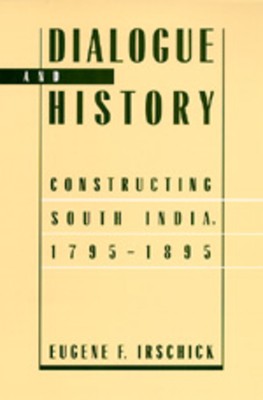
- We will send in 10–14 business days.
- Author: Eugene F Irschick
- Publisher: University of California Press
- ISBN-10: 0520084055
- ISBN-13: 9780520084056
- Format: 15.3 x 22.9 x 2.1 cm, softcover
- Language: English
- SAVE -10% with code: EXTRA
Reviews
Description
Eugene Irschick deftly questions the conventional wisdom that knowledge about a colonial culture is unilaterally defined by its rulers. Focusing on nineteenth-century South India, he demonstrates that a society's view of its history results from a "dialogic process" involving all its constituencies.
For centuries, agricultural life in South India was seminomadic. But when the British took dominion, they sought to stabilize the region by inventing a Tamil "golden age" of sedentary, prosperous villages. Irschick shows that this construction resulted not from overt British manipulation but from an intricate cross-pollination of both European and native ideas. He argues that the Tamil played a critical role in constructing their past and thus shaping their future. And British administrators adapted local customs to their own uses.
EXTRA 10 % discount with code: EXTRA
The promotion ends in 18d.06:38:35
The discount code is valid when purchasing from 10 €. Discounts do not stack.
- Author: Eugene F Irschick
- Publisher: University of California Press
- ISBN-10: 0520084055
- ISBN-13: 9780520084056
- Format: 15.3 x 22.9 x 2.1 cm, softcover
- Language: English English
Eugene Irschick deftly questions the conventional wisdom that knowledge about a colonial culture is unilaterally defined by its rulers. Focusing on nineteenth-century South India, he demonstrates that a society's view of its history results from a "dialogic process" involving all its constituencies.
For centuries, agricultural life in South India was seminomadic. But when the British took dominion, they sought to stabilize the region by inventing a Tamil "golden age" of sedentary, prosperous villages. Irschick shows that this construction resulted not from overt British manipulation but from an intricate cross-pollination of both European and native ideas. He argues that the Tamil played a critical role in constructing their past and thus shaping their future. And British administrators adapted local customs to their own uses.


Reviews